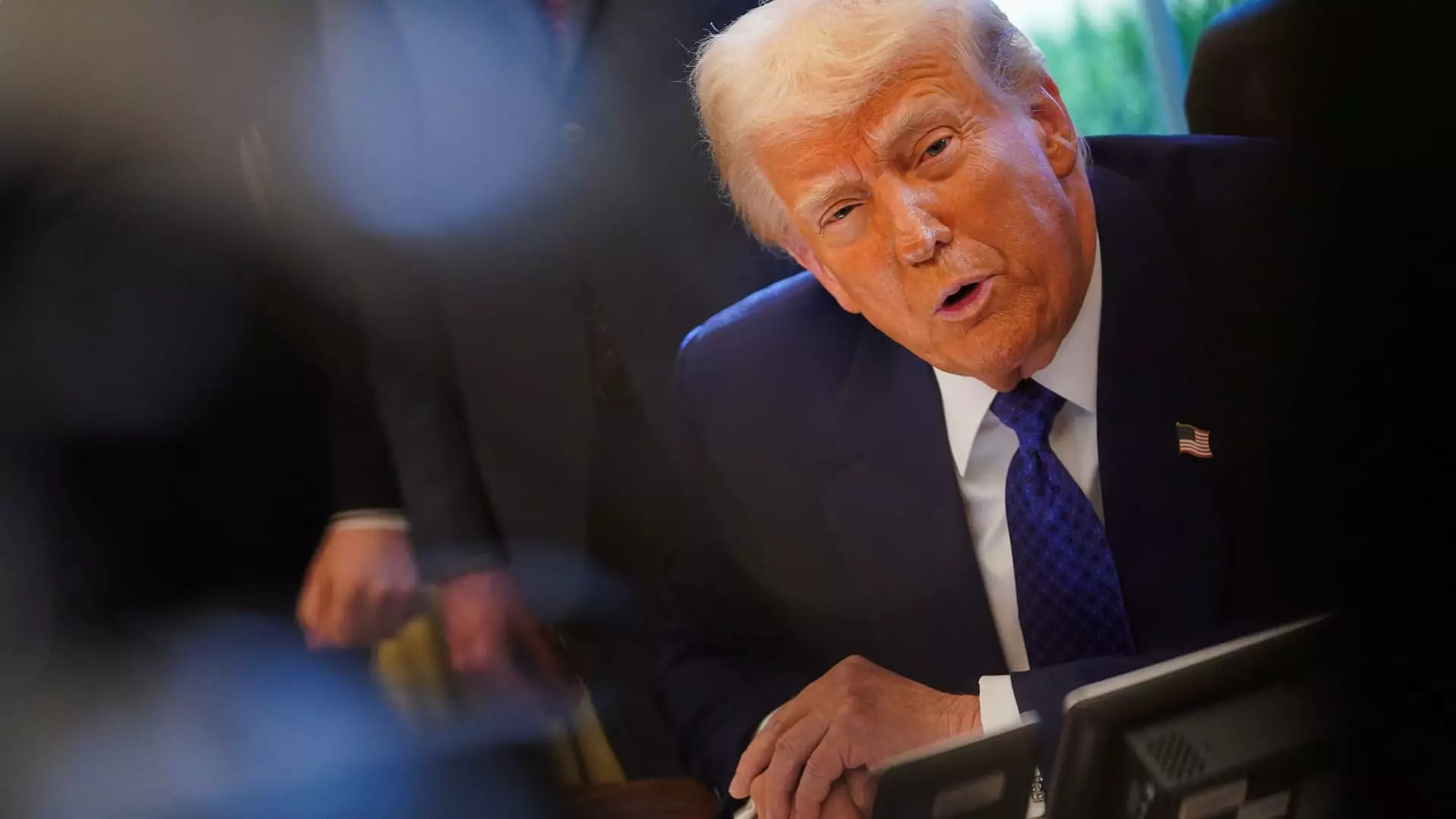The geopolitical scene surrounding Ukraine has devolved into a myriad of complications since the onset of the conflict in February 2022. Central to the multifaceted interplay among nations is a contentious proposal put forth by the Trump administration, which has sparked significant controversy: a suggestion that the United States could gain 50% ownership of Ukraine’s rare earth minerals. This article aims to dissect the implications of such a proposal, examining its potential impact on Ukraine’s sovereignty, the geopolitical balance, and international relations.
Rare earth minerals are integral to modern technology, utilized in various sectors from electronics to renewable energy. Their availability is essential for technological advancements and national security. For Ukraine, possessing these resources presents both an opportunity and a precarious situation. The proposed agreement to allow U.S. ownership in exchange for military aid could deepen Ukraine’s dependency on the United States. Under these terms, rather than simply receiving military assistance, Ukraine would effectively be bartering its mineral wealth — a strategy that raises substantial ethical and strategic questions.
The statement from U.S. Treasury Secretary Scott Bessent emphasized the administration’s readiness to follow through on their proposal, which could redefine how military alliances and international relations are structured. By offering a pathway to 50% ownership, the U.S. is signaling a shift that not only capitalizes on Ukraine’s resources but also prioritizes strategic interests that could inadvertently compromise Ukraine’s autonomy in the future.
Negotiation Dynamics: Trust Issues and Internal Consultations
President Volodymyr Zelenskyy’s hesitance to sign the initial document presented by Bessent illustrates the complexities inherent in international negotiations. Zelenskyy’s assertion that he needed to delve further into the legalities and implications of a potential agreement underscores the tenuous balance between immediate military support and long-term national interests. This is particularly critical for a country embroiled in a dire conflict where reliance on external powers could fundamentally alter national sovereignty.
The need for Zelenskyy to consult his legal advisors highlights the intricate layers of trust and scrutiny that envelop modern diplomatic engagements. The stakes are exceptionally high, with Ukraine striving to sustain its existence while simultaneously navigating a labyrinth of international power plays. Questions loom regarding how such a deal might be perceived domestically within Ukraine, as well as by other nations observing these developments keenly.
The Broader Implications of Military Presence
The discourse surrounding the potential deployment of U.S. troops to safeguard these minerals adds another layer of complexity to the proposal. While Defense Secretary Pete Hegseth stated that troops would not be sent as part of any security guarantees, the context in which U.S. military presence is discussed emphasizes the fragile nature of Ukraine’s current situation. An armed U.S. presence could evoke various responses, both within Ukraine and from global actors like Russia, fundamentally shifting the landscape of conflict and international allegiances.
While some policymakers, such as JD Vance, suggest that troop deployment may be a possibility if Russia maintains a hardened stance against peace, the implications of such a move are profound. It raises questions about escalation, military engagement impacts, and the long-term security of not just Ukraine, but also surrounding nations in Eastern Europe.
The relationship between the U.S. and Ukraine is already strained under the weight of historical meddling and military alliances. Trump’s past criticisms of Zelenskyy and comments on financial aid suggest an underlying tension that could affect trust. Describing the Ukrainian president as “the greatest salesman on Earth” trivializes the complexity of Ukraine’s plight and diminishes the mutual respect necessary for effective diplomacy.
If the proposal for ownership of valuable resources leads to a perception of exploitation rather than cooperation, it may foster resentment among Ukrainian citizens toward American influence. Furthermore, should Ukraine be seen as sacrificing its assets for military support, the narrative could shift from one of partnership to one of servitude — with potentially catastrophic consequences for future negotiations or cooperation on other fronts.
The suggestions being floated by the Trump administration about U.S. ownership of Ukraine’s rare earth minerals encapsulate the fragility of international relations amidst the uncertainty of war. As Ukraine navigates these treacherous waters, the quest for survival must be weighed against the considerable risks associated with reliance on foreign powers. The implications are vast, and the world watches closely as this narrative unfolds amidst a backdrop of conflict and diplomacy.

